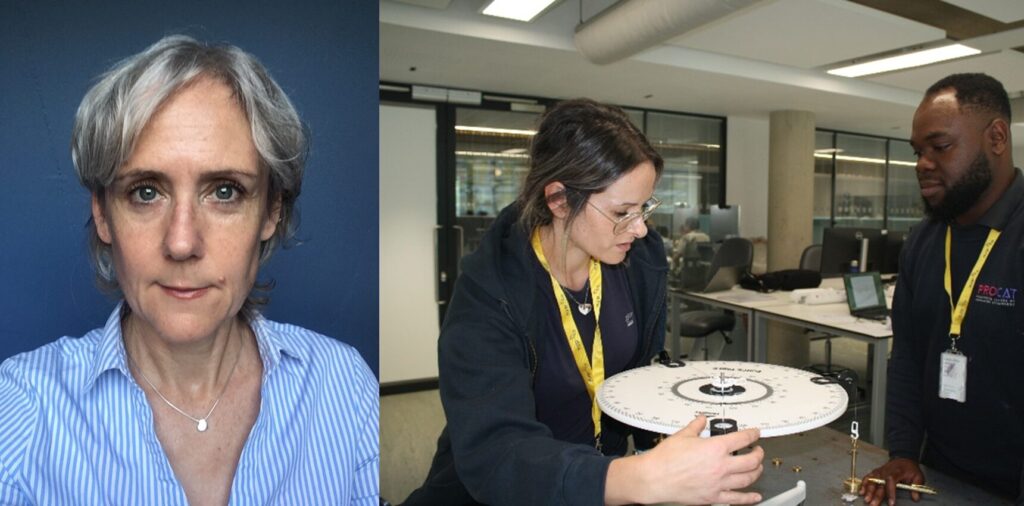ARU Peterborough’s Assistant Principal Dr Esther Norton has redesigned Anglia Ruskin University’s Engineering undergraduate curriculum to reflect the holistic nature of modern engineering and encourage a more diverse pipeline of future engineers.
Dr Norton wants to remove the barriers to students studying Engineering at degree level to ensure a wide talent pool for the future of the industry while also providing them with the professional skills they need to tackle 21st century challenges.
Dr Norton said: “The engineering sector needs people who are accomplished in a range of skills, so it is incredibly important that we are attracting people from a wide range of backgrounds, with a range of skills. A common misconception is that we just need engineers who are really good at maths, but this isn’t the case. The world needs engineers who can communicate, who can problem solve, work as a team and appreciate different perspectives. There are so many examples of bad engineering design because of a lack of diversity of thought in design teams.”
Understanding that maths is just one of the barriers to people considering a career in engineering, Dr Norton purposefully developed the course’s entry criteria to not include A Level maths to encourage a much more diverse range of people who think differently to solve problems.
“We do require a good pass at GCSE but that is purely to show that you can do maths.” Dr Norton continued. “An effective engineering team requires a wide range of skills, including creativity, and I would urge anyone who has studied arts focused or humanities subjects to consider a career in engineering. Engineering is all about finding technical solutions to benefit people, society and the environment. So we need people who understand not only the technical but all these other aspects impacted by engineering.”
Dr Norton believes that in order to increase the number of female applicants, there needs to be the right support for them: “It’s not intentional, but it is a cultural issue within the industry. While typically female students do better in their Engineering degree than men, they don’t progress in the same way when in industry. So, we, as higher education institutions, also have a role to play in having a positive impact on young female Engineering students so that the future of the industry is a more inclusive one. For our female students, we know it is really important for them to find their community on the course they are studying, and this is where women in engineering groups really play their part.”
Alongside widening access, the Times Higher Education University of the Year places emphasis on project-based learning, so that students are working on real life engineering projects from day one and enables them to “think and behave as engineers from the very start of the course”.
“Typically engineering courses have been designed by engineers who are good abstract thinkers. What we are hoping to achieve through this restructured programme, is that students will be given a more holistic view of engineering. We want to appeal to those who care about the environment and society, and want to make the world to be a better place.”
Dr Norton believes that this gives students the context to relate theory to practice and to make connections across the subject areas, giving them that holistic vision which is vital to tackling current challenges like climate change.
“I genuinely believe that by removing barriers and by focusing the curriculum on an engineering project that centres around design for people and the environment, we can encourage a more diverse group of future engineers into a sector which offers rewarding and stimulating careers. This will help to create discernible cultural change for the future of engineering and ensure that it is a bright and inclusive one.”
To find out more about ARU’s Engineering course, visit: https://www.aru.ac.uk/study/





